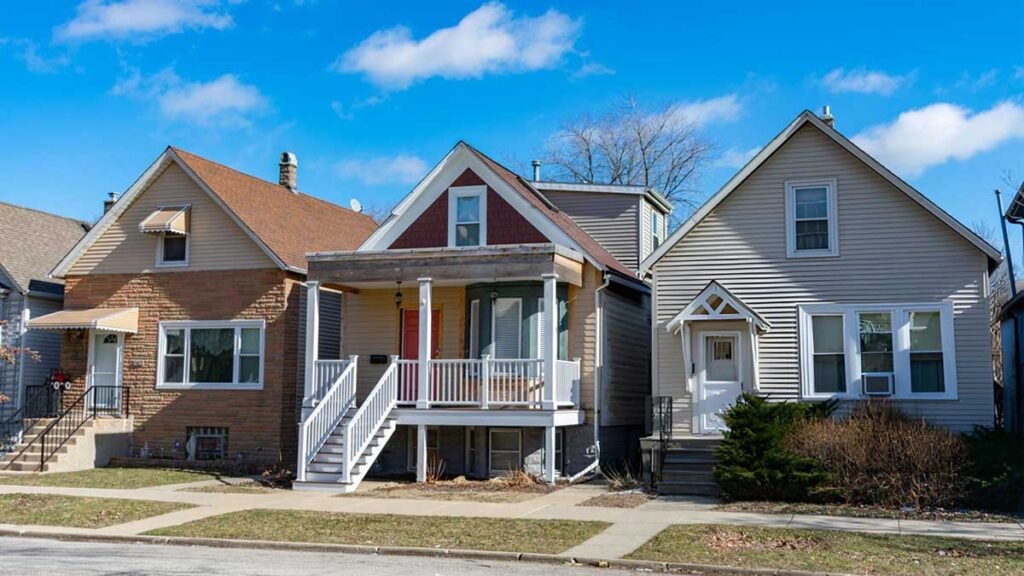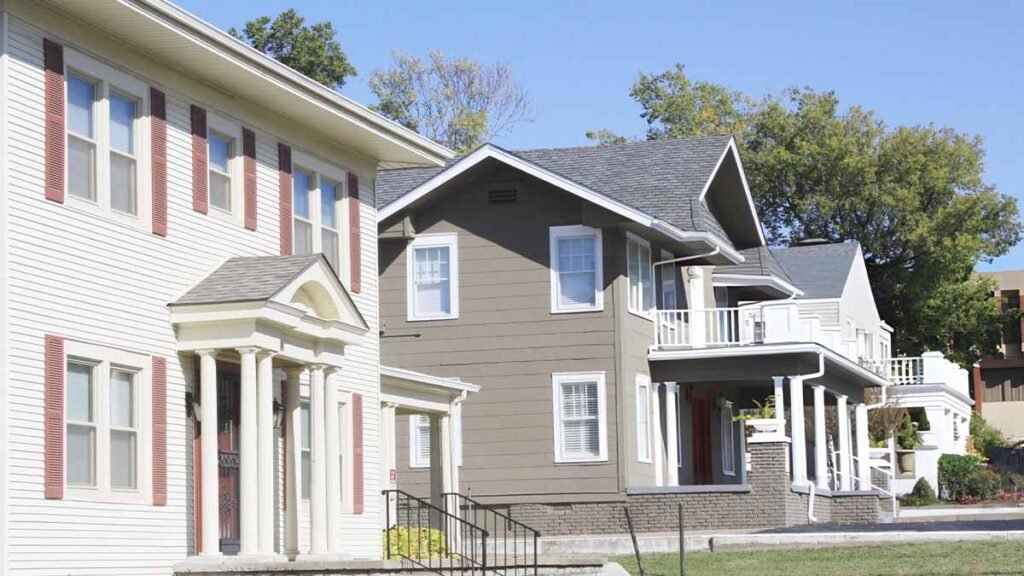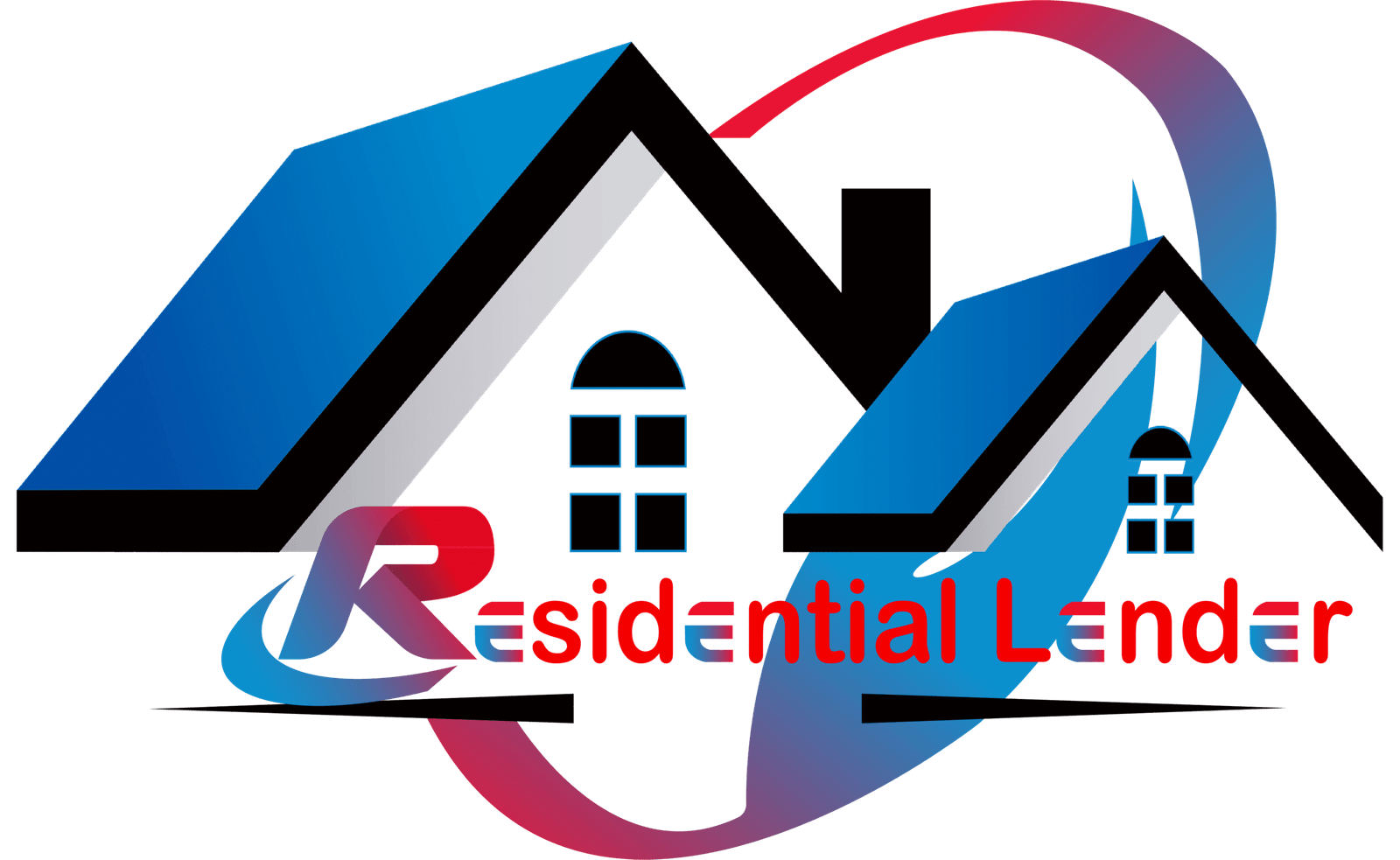The National Association of Realtors says that having rental homes brings in more passive income than stocks for most Americans. Residentiallender.net has many loan choices and professional advice to help you find the best real estate investment opportunities. This blog aims to give people the tools to reach their financial goals and spend wisely by teaching them about home loans.
How Residential Investment Loans Work

Types of Residential Investment Properties
Before we talk about loans, let’s look at the different kinds of homes you might want to buy as investments:
- Commercial Multi-Family Properties: These buildings have more than one unit, usually flats or condos, that are meant to be rented out to different people. They have the possibility for higher returns because they have more ways to make money, but they are harder to manage.
- Single-Family Rental Properties: This is the standard choice: you own a detached house and rent it to a single family. It strikes a good balance between the chance to make money from rentals and the ease of maintenance.
- Townhouses: Like single-family homes, townhouses are connected homes that share at least one wall with the units next to them. They might be a good choice for investors who want to find a good mix between price and rental income.
Benefits of Residential Investment Loans
Residential business loans let you do many different things with your money. Here are some essential perks to think about:
- Building Wealth & Equity: Over time, as renters pay, you build equity in your home. This raises your net worth and protects your finances.
- Creating Passive Income: Rental income is a steady source of cash flow, even when you’re not working. This could make or break your financial plans. Cash flow analysis is essential to looking at possible properties because it helps you determine how much money the investment will make and how much it will cost.
- Diversification of Investment Portfolio: Investing money into real estate can help spread your risk. This could help you have a more stable and safe financial future.
- Potential Tax Advantages: If you own rental homes, you can get tax breaks for depreciation, mortgage interest, and property taxes. Talking to a tax expert is essential to knowing what benefits are open to you.
Financing Your Residential Investment

Now that you know more about the exciting world of buying homes to rent out, let’s look at the different ways you can get the money you need to make your dreams come true.
Traditional Loans vs. Hard Money Loans
Regarding funding your investment, there are two primary choices: traditional and hard money loans. Knowing what makes each unique will help you pick the best one for your needs.
Traditional Loans
- Requirements: It would be best to have good credit (often above 680), proof of income, and a 20% down payment or more for these loans. There may be more steps to take, and it may take longer to apply for hard money loans.
- Advantages: The interest rates on traditional loans are much cheaper than those on hard money loans. They also have longer loan terms (15 to 30 years), making the monthly payments more straightforward.
- Disadvantages: Getting a standard loan can take a lot of work, especially if you are a new investor. The process of getting a loan can take a long time, which could push back your spending deadline. Traditional lenders may also have tighter rules about what properties they will finance.
Hard Money Loans
- Characteristics: Private lenders give out hard money loans, and the property’s value is more critical than the borrower’s credit past. They might be a good choice for investors with bad credit or who want to finance homes that don’t fit the standard criteria.
- Suitability: Hard money loans are outstanding for quick borrowing, like when you need to fix up a house and sell it quickly. They may also be a good option for investors who need help getting standard loans.
- Potential Drawbacks: The interest rates on hard money loans are much higher than those on other loans. They also usually have shorter loan terms (6 to 18 months), which means you have to pay them back faster. There may also be extra costs that come with hard money loans.
The Role of a Correspondent Lender
This is where ResidentialLender.net comes in! As an associate lender, we put you in touch with a massive group of lenders specializing in home investment loans. We research to find the best deals for you based on your needs and the type of property you own.
Benefits of using a correspondent lender for residential investment loans:
- Access to Diverse Loan Options: We get a lot of different loan options from many other lenders, so you have a better chance of finding the right one for your investment goals.
- Streamlined Process: Our team of experts helps you through the complicated loan application process, which saves you time and work.
- Expert Guidance: We give you specialized help throughout the loan process to ensure you understand and make intelligent choices.
In-House Underwriting Expertise
Fast and easy are important to us at residentiallender.net. This is why we have an in-house underwriting team with a lot of knowledge. We can quickly review your loan application and get back to you. This lets you focus on getting your dream rental property without waiting for long external underwriting processes.
Additional Considerations for Residential Investment Loans

Before you decide on a final financial plan, here are some essential things to think about:
Importance of a Strong Credit Score
When lenders look at your loan application, your credit score is one of the most important things they look at. A good credit score (usually above 680.0) shows that you have been careful with borrowing money. It makes you more likely to get a loan with good terms, like lower interest rates and loan amounts. If you want to raise your credit score, pay off your bills on time, and keep your credit utilization ratio low.
Down Payment Requirements
Depending on the type of loan and seller, the down payment needed for a home investment loan is usually between 15% and 25%. A higher down payment lowers the amount of money you need to borrow, reducing your monthly payments and the cost. It also shows the lender that you are serious about putting money into the business.
Cash Flow Analysis
The difference between the money you make from renting out your property and the money you spend on running and holding it (mortgage payment, property taxes, repairs, insurance, etc.). This is called cash flow. To determine if your property is a good investment, you must know how much money it could bring in.
Why Cash Flow Analysis Matters
If your cash flow is positive, your investment will make you enough money to cover your costs and give you a return. You have negative cash flow when your costs are higher than your income. This can strain your finances and make it hard to keep your investment going long-term.
Resources and Tools to Help You
We know how vital cash flow research is here at residentiallender.net. Here are some things we can give you to help you get started:
- Free Cash Flow Analysis Templates: You can use our simple templates to project your property’s income and costs, which will help you figure out how much cash you have coming in and out.
- Educational Guides: Our guides explain the ideas behind cash flow and advise how to make your investment more profitable.
- Expert Advice: The people who work on loans for us can walk you through the cash flow analysis process and answer any questions.
You can make intelligent choices and set yourself up for success in the exciting world of residential investment properties by carefully considering these other factors and using the resources.
ResidentialLender.net: Your Superbroker for Residential Investment Loans
Are you ready to reach your full potential in investing in homes? You don’t need to look further than residentiallender.net for all your home investment loan needs.
Here’s why residentiallender.net is your super broker for success:
- Expertise in Securing Traditional Loans: Our team of skilled experts knows how to deal with standard loans and will ensure you get the best rates and terms for your investment property.
- Superbroker Capabilities for Wider Loan Options: As your personal loan broker, we connect you with a vast network of lenders and give you a more comprehensive range of loan choices than you could find on your own. You’ll have a better chance of getting the right loan for your investing goals this way.
- Streamlined Process with In-House Underwriting: Our in-house underwriting team speeds up the loan acceptance process so you can focus on getting your dream home instead of waiting.
Take advantage of this exciting opportunity!
Get in touch with residentiallender.net right away for a free chat. Our loan experts are ready to discuss your business goals and answer any questions you may have. We can help you reach your financial goals and unlock the full potential of your residential property.
- Call at (844) 690-6000
- Send an email to [email protected]
We’re excited to hear from you!
FAQs
What types of residential investment properties can I finance with a loan?
Residential property loans can be used to buy various properties, such as townhouses, single-family rental homes, and multi-family buildings (also called apartment buildings).
What are the benefits of owning residential investment properties?
Building wealth and equity, getting passive income from rental income, spreading out your investments, and getting tax breaks are just a few perks.
What are the main challenges to residential investment properties?
Managing properties, dealing with empty units, and paying for ongoing costs like fixes and maintenance are some of the problems that landlords face.
What credit score is needed for a residential investment loan?
The minimum credit score changes from lender to lender and loan type to loan type. Most of the time, a number above 680 is better.
What is the typical down payment for a residential investment loan?
Down payments are usually between 15% and 25% of the price of the house.
How long does it take to get approved for a residential investment loan?
The time it takes to get approved can change based on the loan and how complicated your case is. The process can go faster with in-house financing at residentiallender.net.
What does residentiallender.net offer?
As an alternative lender, we put you in touch with an wide range of lenders who specialize in home investment loans. We help with every step of the loan process, from applying for the loan to finishing it.
What are the benefits of using residentiallender.net?
We give you access to more loan choices, make the process easier, and offer expert advice with in-house underwriting so that you can get approved faster.
How do I contact residentiallender.net?
You can email us at [email protected] or (844) 690-6000. We can also meet with you for free to discuss your financial goals and answer any questions you have.








